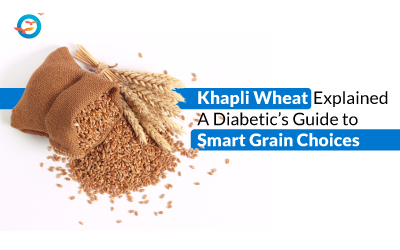Is Plum Good for Diabetes?

In the realm of superfoods, plums are often overlooked, yet they hold significant potential for those living with diabetes. With their unique combination of nutrients, these juicy fruits can play a role in promoting overall health and well-being.
Understanding Plums: A Nutritional Overview
A plum is a juicy, sweet fruit that belongs to the genus Prunus, which also includes cherries, apricots, and almonds.
Plums are typically round or oval in shape and come in various colors, including purple, red, yellow, and green. The flesh of the plum is smooth and can range from firm to soft, depending on the variety and ripeness.
Nutritional Powerhouse: Health Benefits of Plums
Plums are a nutritional powerhouse, offering a wealth of health benefits packed into a small, delicious fruit. They are low in calories and high in essential nutrients, including vitamins C and K, potassium, and dietary fiber. One of the standout features of plums is their rich antioxidant content, which includes compounds such as phenols and flavonoids.
These antioxidants play a crucial role in combating oxidative stress in the body, helping to reduce inflammation and lower the risk of chronic diseases such as heart disease and certain cancers. The high levels of antioxidants in plums also contribute to overall skin health, promoting a youthful appearance by protecting against damage from free radicals. Incorporating plums into a balanced diet can enhance overall well-being while providing a tasty and refreshing treat.
Plum for Diabetes: A Beneficial Addition
Diabetics can greatly benefit from incorporating plums into their diet due to their unique combination of antioxidants, nutrients, and fiber. The antioxidants found in plums, such as phenolic compounds, help combat oxidative stress and inflammation, which are often elevated in individuals with diabetes.
These compounds can improve insulin sensitivity and support overall metabolic health. Additionally, plums are relatively low in carbohydrates and have a low glycemic index, making them a suitable fruit choice for managing blood sugar levels.
The Role of Fiber in Blood Sugar Management
The higher fiber content in plums is another significant advantage for diabetics. Fiber aids in slowing down the absorption of sugar into the bloodstream, helping to prevent spikes in blood glucose levels. Furthermore, the soluble fiber in plums can promote digestive health, making them an effective remedy for constipation.
Beyond diabetes management, the nutrients in plums, including potassium, can help regulate blood pressure, while their iron content can assist in combating iron deficiency anemia.
Plum Glycemic Index
Knowing plum glycemic index (GI) is essential for individuals managing diabetes or those concerned about their blood sugar levels. Plums have a low to moderate glycemic index, which means they can be a suitable fruit option for maintaining stable blood glucose levels when consumed in moderation.
However, it's crucial to consult a healthcare professional or a registered dietitian to determine the appropriate portion size and frequency of plum consumption tailored to individual dietary needs. Experts can provide guidance on the best times to enjoy plums, such as incorporating them into meals or snacks to maximize their benefits while minimizing any potential impact on blood sugar.
Additionally, they can suggest various ways to consume plums, whether fresh, dried, or blended into smoothies, ensuring that individuals can enjoy this nutritious fruit while effectively managing their health.
Conclusion: Embracing Plums for Better Health
Overall, plums offer a delicious and nutritious option for diabetics, contributing to better health outcomes and addressing various other health issues.
FAQs
1. Are plums safe for people with diabetes?
Yes, plums are safe for people with diabetes.
2. How many plums can a diabetic person eat per day?
1-2 medium-sized plums per day.
3. What are the health benefits of plums for diabetics?
They provide antioxidants, fiber, and can help regulate blood sugar levels.
4. What is the glycemic index (GI) of plums?
The glycemic index of plums is around 40.
5. Who should not eat plums?
Individuals with certain allergies or digestive issues should avoid plums.
6. Are plums a low-sugar fruit?
Yes, plums are considered low-sugar fruits.
7. Is black plum good for people with diabetes?
Yes, black plums can be beneficial for people with diabetes.

